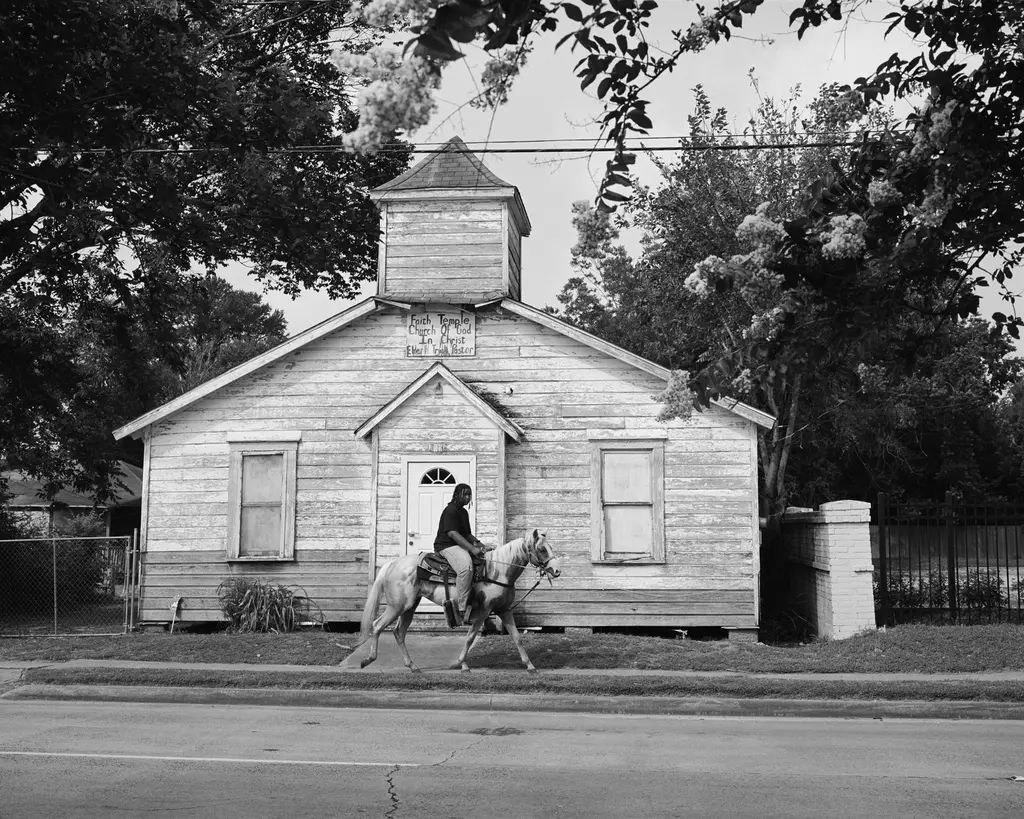A visual tribute to Sheffield’s underground music scene
- Text by Daniel Dylan Wray
- Photography by Barbara Wasiak

1987. Sheffield. In the ballroom of the City Hall, house and rare groove music pumps loudly from speakers. The over-capacity crowd dances, as sweat slides down the walls and drips from the ceiling. Barbara Wasiak weaves between the dancing bodies with a camera in hand, clicking away, capturing the elation and euphoria of those at club night Jive Turkey.
“She was a force of nature,” says Cabaret Voltaire’s Stephen Mallinder, fondly remembering his friend and collaborator who passed away in 2007. “She was combative, creative and confident.”
After a successful 2017 crowdfunding campaign, an exhibition of Wasiak’s work – Steel, Street, Synth & Shutter – is currently taking place at Sheffield’s Sensoria festival. The show was organised in collaboration with Jose Snook, her friend, collaborator and archivist.

Julie Stewart
Wasiak’s eye was a crucial one in Sheffield, capturing a city in a state of cultural and political flux. As the beat of Sheffield’s music scene grew louder throughout the ’80s, she was there to capture its bands and DJs, such as Chakk, Cabaret Voltaire, In the Nursery, Roisin Murphy, Krush, Winston and Parrot and Treebound Story.
Many of these artists stemmed from the burgeoning cultural forces in the city, such as FON Studios, Warp Records and Jive Turkey, all of which Barbara was a magnet to. “She wasn’t just archiving it all,” Stephen remembers. “She was in the centre of that maelstrom, she was part of it.” Jive Turkey DJ Winston Hazel echoes this sentiment too: “she lived it and framed it.”

Yorks Water
On top of immersing herself in the rising music scene of Sheffield during this key period, Wasiak also focused her lens on the city in a wider sense, capturing its architecture, people, politics and pulse. As a result, her work acts as a wide-angle snapshot of life in the city during these times. Jose remembers this impassioned and broad approach. “Barbara was very politically engaged and concerned about injustice at both a societal and personal level,” she says. “She was able to visualise, capture and communicate what a lot of people were thinking.”
Steel, Street, Synth & Shutter captures this breadth of her work and interests, which displays pictures of crumbling and evicted city centre housing blocks alongside anti-Poll Tax demonstrations, miners marches, and NME photoshoots. “She was really there in the thick of it,” remembers Jose. “And at a time that was of huge importance for Sheffield’s music and alternative culture scenes.”

Richard Kirk
She adds that displaying all elements of Barbara’s work in one place is important for remembering the work of her late friend, who worked for over three decades in the city. “What made her role so unique and crucial was the way she turned her lens upon the social and political context in which all this creativity flourished. Each generation has its own particular problems, issues and fears to contend with – for us there was the Cold War, high levels of youth unemployment, the decimation of the mining and steel industries and HIV.”
“It also seemed as if the Thatcher Government was intent on punishing the working classes and the North. All this pushed Barbara and others to make things happen for themselves. I think there was a sense of urgency and a will to try to make a difference. At the same time there was a lot of hedonism, and people partied and danced hard. I think Barbara captured all of this in her work.”

Dawn Shadforth and Roisin Murphy

DJ Winston and Parrott

No Time to Waste. Lady’s Bridge series, 2000-2004

Silk Cuts

DJ Box

Mark Brydon and Rob Gordon. Sheffield. 1987 for the NME.
Steel, Street, Synth & Shutter is a free exhibition and open daily until Oct 6 at Trafalgar Warehouse.
Follow Daniel Dylan Wray on Twitter.
Enjoyed this article? Like Huck on Facebook or follow us on Twitter.
Latest on Huck

Meet the trans-led hairdressers providing London with gender-affirming trims
Open Out — Since being founded in 2011, the Hoxton salon has become a crucial space the city’s LGBTQ+ community. Hannah Bentley caught up with co-founder Greygory Vass to hear about its growth, breaking down barbering binaries, and the recent Supreme Court ruling.
Written by: Hannah Bentley

Gazan amputees secure Para-Cycling World Championships qualification
Gaza Sunbirds — Alaa al-Dali and Mohamed Asfour earned Palestine’s first-ever top-20 finish at the Para-Cycling World Cup in Belgium over the weekend.
Written by: Isaac Muk

New documentary revisits the radical history of UK free rave culture
Free Party: A Folk History — Directed by Aaron Trinder, it features first-hand stories from key crews including DiY, Spiral Tribe, Bedlam and Circus Warp, with public streaming available from May 30.
Written by: Isaac Muk

Rahim Fortune’s dreamlike vision of the Black American South
Reflections — In the Texas native’s debut solo show, he weaves familial history and documentary photography to challenge the region’s visual tropes.
Written by: Miss Rosen

Why Katy Perry’s space flight was one giant flop for mankind
Galactic girlbossing — In a widely-panned, 11-minute trip to the edge of the earth’s atmosphere, the ‘Women’s World’ singer joined an all-female space crew in an expensive vanity advert for Jeff Bezos’ Blue Origin. Newsletter columnist Emma Garland explains its apocalypse indicating signs.
Written by: Emma Garland

Katie Goh: “I want people to engage with the politics of oranges”
Foreign Fruit — In her new book, the Edinburgh-based writer traces her personal history through the citrus fruit’s global spread, from a village in China to Californian groves. Angela Hui caught up with her to find out more.
Written by: Katie Goh

